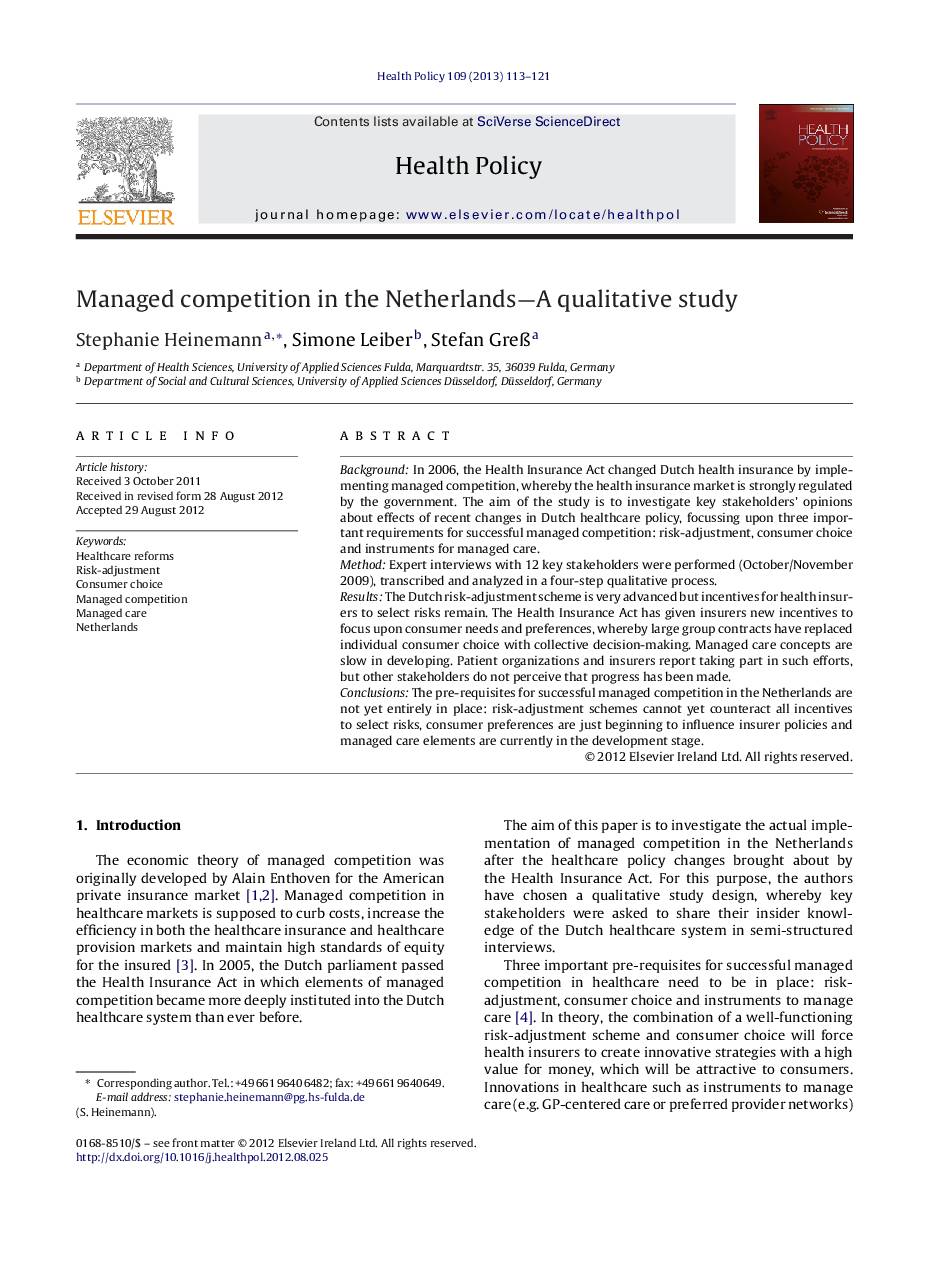| Article ID | Journal | Published Year | Pages | File Type |
|---|---|---|---|---|
| 4197962 | Health Policy | 2013 | 9 Pages |
BackgroundIn 2006, the Health Insurance Act changed Dutch health insurance by implementing managed competition, whereby the health insurance market is strongly regulated by the government. The aim of the study is to investigate key stakeholders’ opinions about effects of recent changes in Dutch healthcare policy, focussing upon three important requirements for successful managed competition: risk-adjustment, consumer choice and instruments for managed care.MethodExpert interviews with 12 key stakeholders were performed (October/November 2009), transcribed and analyzed in a four-step qualitative process.ResultsThe Dutch risk-adjustment scheme is very advanced but incentives for health insurers to select risks remain. The Health Insurance Act has given insurers new incentives to focus upon consumer needs and preferences, whereby large group contracts have replaced individual consumer choice with collective decision-making. Managed care concepts are slow in developing. Patient organizations and insurers report taking part in such efforts, but other stakeholders do not perceive that progress has been made.ConclusionsThe pre-requisites for successful managed competition in the Netherlands are not yet entirely in place: risk-adjustment schemes cannot yet counteract all incentives to select risks, consumer preferences are just beginning to influence insurer policies and managed care elements are currently in the development stage.
